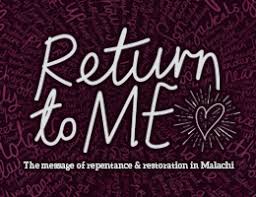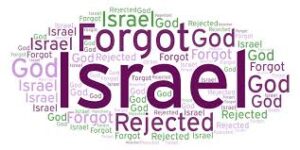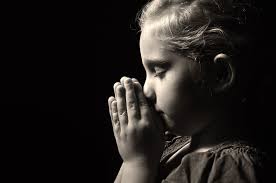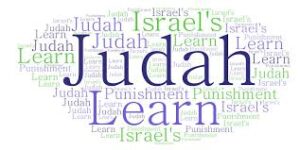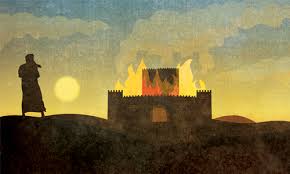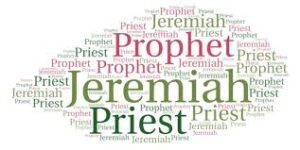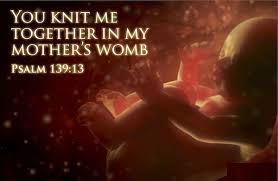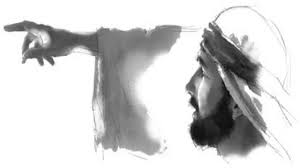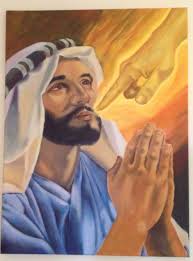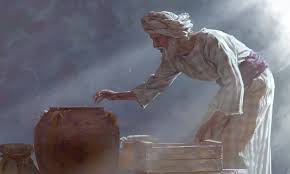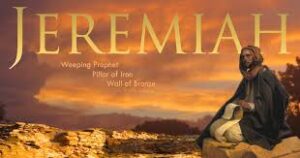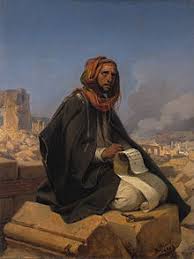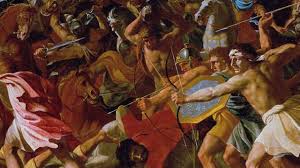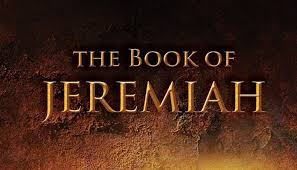Aw – The Call for Judah to Avoid the Wrath of God 4: 5-31
The Call for Judah to Avoid the Wrath of God
4: 5-31
During the reign of Josiah
God’s near historical judgments are inevitable and Jeremiah senses this. Here we have a picture of impending disaster. Flight to the protection of the walled cities; terror and dismay spread over the land; the enemy swoops down on the doomed country; the prophet’s grief at the horror of it all, particularly as it is caused by the people’s continuous rebellion; a graphic vision of the earth waste and void reeling under God’s anger; Tziyon cries out in distress as the Babylonian invaders destroy Yerushalayim.
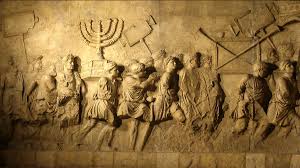
Given the reality of the foe from the north, remarkably little is said in this segment, or in the first half of Yirmeyahu for that matter, regarding military policies or decisions. More than that, the readers are not invited to engage in a political or social analysis of the situation. In fact, issues of social justice seldom come explicitly into view (see 2:34 and 5:26-28). It would appear that Jeremiah (not unlike Hosea) understood the problem to be more systemic in nature and clearly seen in spiritual adultery. Specific individual and social sins are understood to be symptomatic of this more fundamental issue. As a society moves further and further away from God, the penalties of their sin become more profound.58






